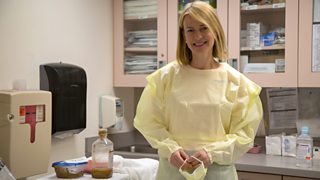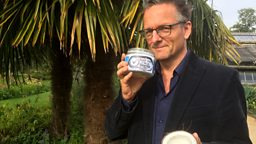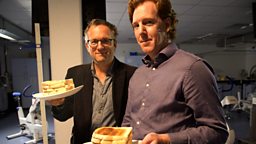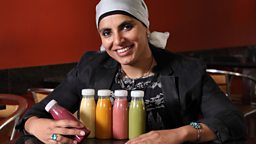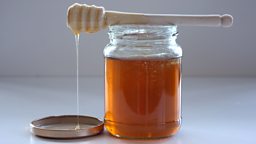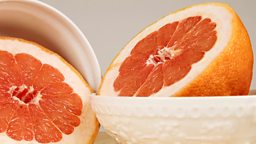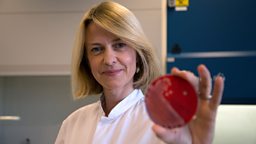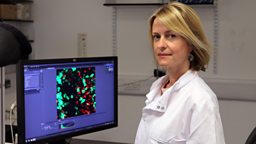Can I alter my gut bacteria and improve my health?
More and more research is suggesting that our gut bacteria can influence almost every aspect of our health, from balancing our blood glucose to affecting our mood. So is there anything we can do to change this inner ecosystem for the better?

Popular probiotic products available readily in supermarkets, pharmacies and health food shops claim that there is. Unlike antibiotics, which kill harmful bacteria, probiotics are supposed to work by enhancing the quality and quantity of so called “friendly bacteria” in our guts.
Already in the UK we spend over £700 million a year on these products, but doubts still remain over how well they actually work. Can the microbes in them survive the perilous journey through the strong acid in our stomachs, which is designed to kill off dangerous bacteria in our food? And if they do survive to reach our intestines, can they compete with the families of bacteria already living there and set up home, populate and multiply?
We wanted to find out, so we worked with experts up and down the country to test three different approaches that, it’s claimed, can help us improve our gut bacteria.
The experiment
We recruited 30 volunteers in Inverness, and with the help of NHS Highland we ran a study for 4 weeks.
Firstly we split our volunteers into three groups:
Group 1 – Probiotic drink
We gave one group of volunteers a readily available ‘off the shelf’ probiotic yoghurt drink to consume daily. These kinds of products contain specific strains of bacteria (mainly Lactobacillus and Bifidobacterium species) that are thought to be resilient enough to survive the perilous journey through our stomach acid.
Group 2 – Fermented drink
Our second group were asked to drink a traditional fermented drink called kefir once a day. Fermented foods and drinks such as kefir, sauerkraut, soy sauce, kimchi and kombucha contain many different types of bacteria. They also contain yeast, which the bacteria like to feed on.
Group 3 – Prebiotic diet
Instead of taking a probiotic, our third group were given what’s called a prebiotic. Prebiotics are foods or substances that feed the beneficial bacteria already present in our gut. We asked our group to consume 7g a day of a prebiotic fibre called inulin which can be found in leeks, chickory root, asparagus, bananas, Jerusalem artichokes, garlic and onion.
All three groups were asked to continue with their usual diet as closely as possible during the 4 weeks, the only change being the intervention drink or food that we gave them.
We asked each participant for a stool sample and a urine sample at the start and end of the study. We also measured their height, weight and body composition (fat to muscle ratio). We asked volunteers to complete regular food diaries and to record digestive symptoms such as bloating or changes in bowel habits.
The stool samples were sent off for DNA sequencing and further analysis by Dr Adele Costabile at Roehampton University and Aaron Walsh at Teagasc Research Centre in Cork. Together the teams mapped out any changes seen in the volunteers’ gut bacteria over the 4 weeks.
The urine samples were analysed by Professor Elaine Holmes at Imperial College London. Elaine and her team were looking for metabolites, or products, that are made by the gut bacteria. By analyzing these metabolites and looking for those that we know to be good for us, we can go some way to inferring whether any increase in populations is beneficial to health.
The results
Group 1 – Probiotic drink
In our timeframe, this group didn’t show a significant change at the genus level of microbes in the gut. Other studies have shown good results in people with digestive symptoms so it may be that our volunteers were just too healthy to see a big difference. We did however see a small change in one bacteria type known to be good for weight management, bacteria called Lachnospiraceae. So although our result wasn’t statistically significant, we did see a small and intriguing change.
Group 2 – Fermented drink
The volunteers who drank the fermented drink kefir every day exhibited the biggest change. These volunteers saw a rise in a whole family of bacteria called Lactobacillales which are thought to be good for general gut health, and are known to help certain conditions including travellers’ diarrhoea and lactose intolerance.
Group 3 – Prebiotic diet
This group did see a significant change in a genus of bacteria called Faecalibacterium. These bacteria produce a metabolite called Butyrate which feeds the cells of the colon and helps to keep them healthy. Research suggests that this is helpful for inflammatory bowel diseases. This result was consistent with other studies showing inulin to be beneficial.
Prebiotic diet
If you want to include more inulin in your diet you can find it in foods like leeks, onions, garlic, asparagus, chicory root, bananas and Jerusalem artichokes.
Our volunteers were eating quite a lot of veg to ensure they got a high level of inulin, but if you want to try this yourself the best way is to include small amounts of these foods as a regular part of your diet.
You could also try eating oats, another prebiotic.
-
![]()
When Dr Chris van Tulleken upped his oat intake in this Trust Me experiment, it changed the proportions of different bacteria in his gut.
Conclusions
The microbiome, the world of microbes in our gut, is a hot area of research right now, with teams around the globe investigating and studying it closely. It’s clear that we are only just scratching the surface, but our small study supports other ongoing research that suggests it IS possible to change your gut bacteria for the better.
There are a few different ways of doing this, but we were surprised at how much difference the fermented drink, kefir, made to our volunteers. Perhaps the greater array of microbes in this drink meant that there was a better chance of at least some ‘good bacteria’ reaching the gut and setting up home.
Our results inspired us to find out more about fermented foods, so with the help of The University of Roehampton and a group called The Fermentarium, based in London, ...
Other Trust Me items about gut bacteria
-
![]()
An extraordinary procedure with 90% success in treating life-threatening C. diff.
-
![]()
Revolutionary new work from Israel that is changing nutrition advice for everyone.

